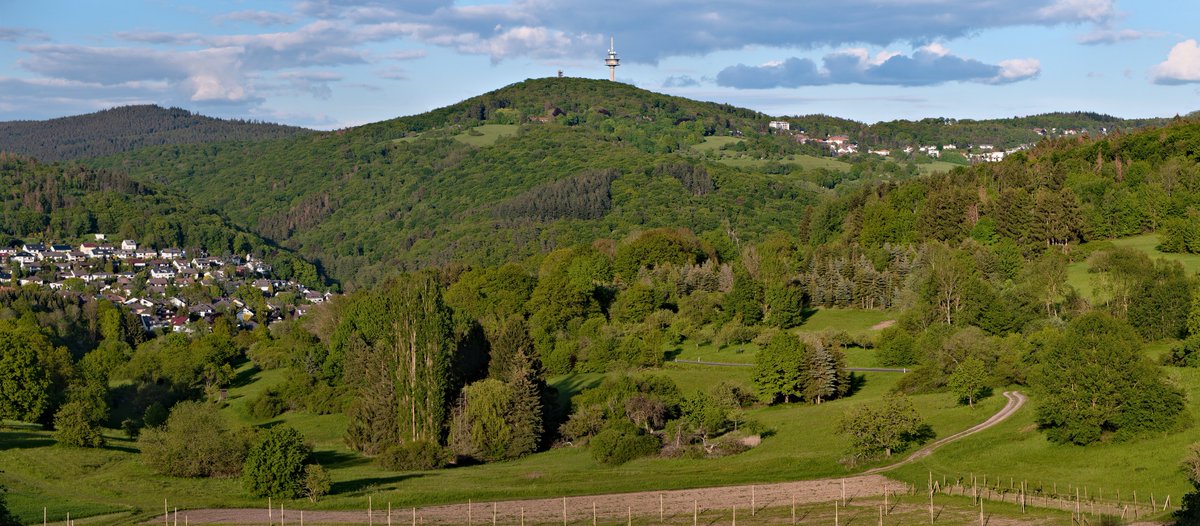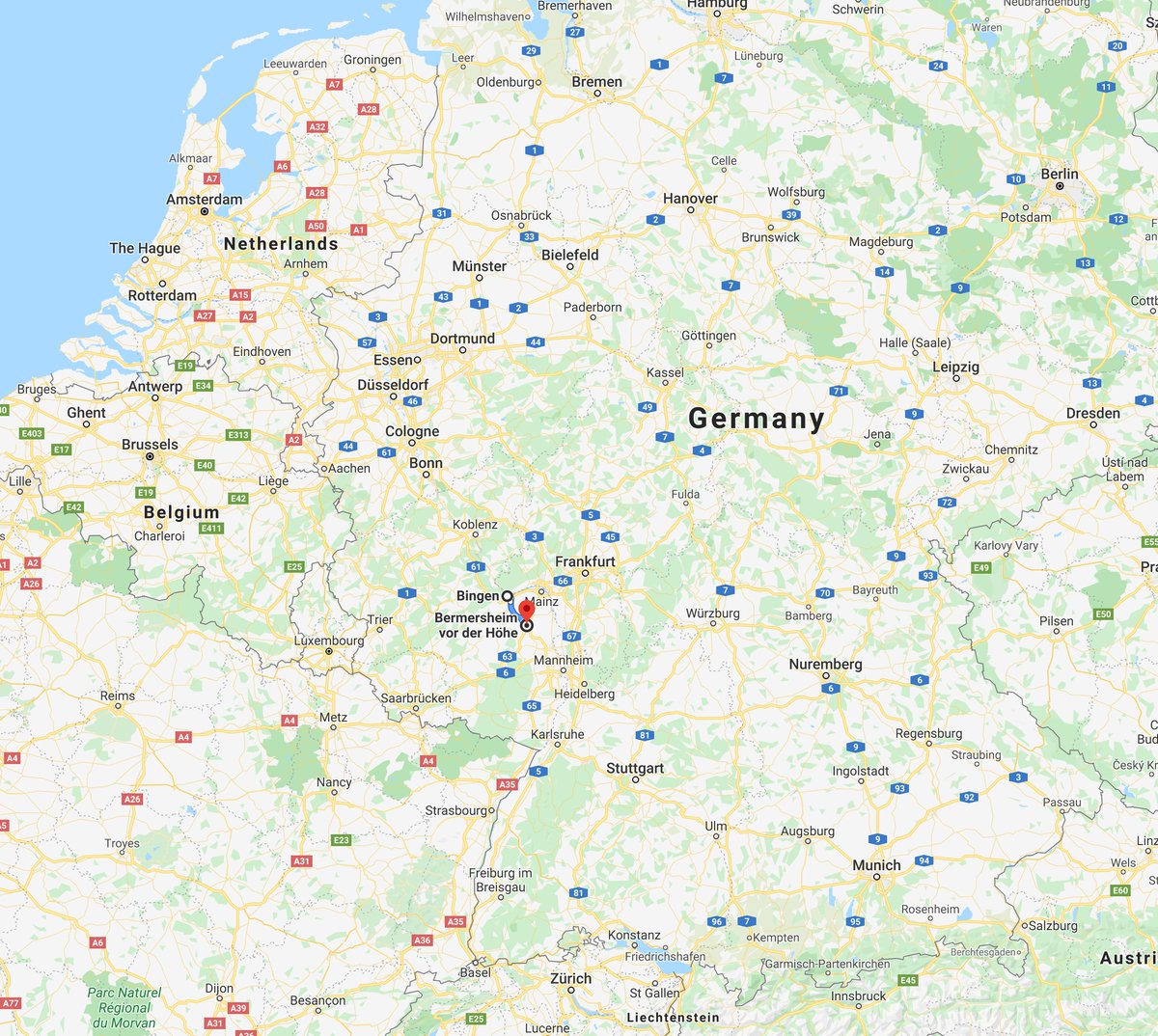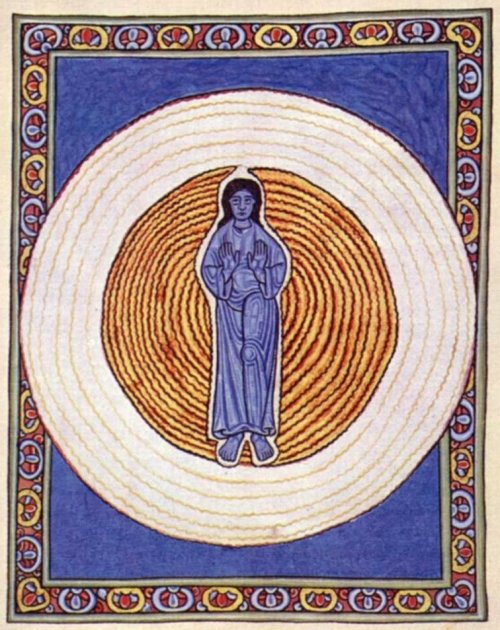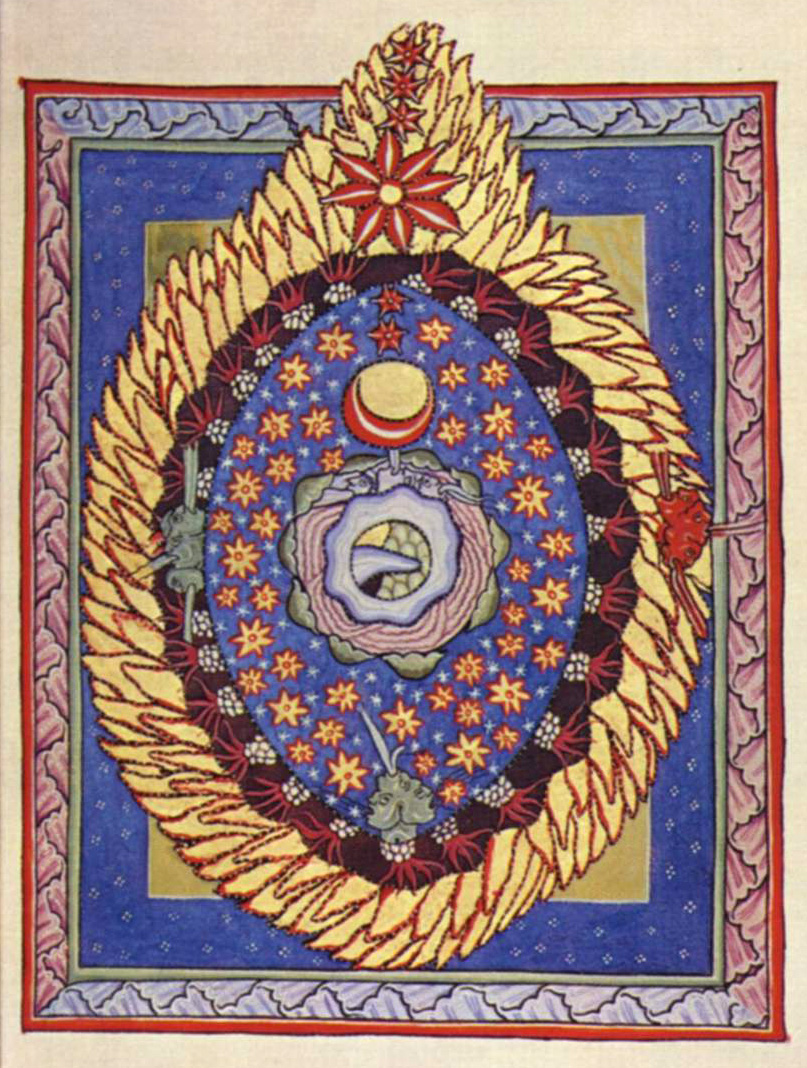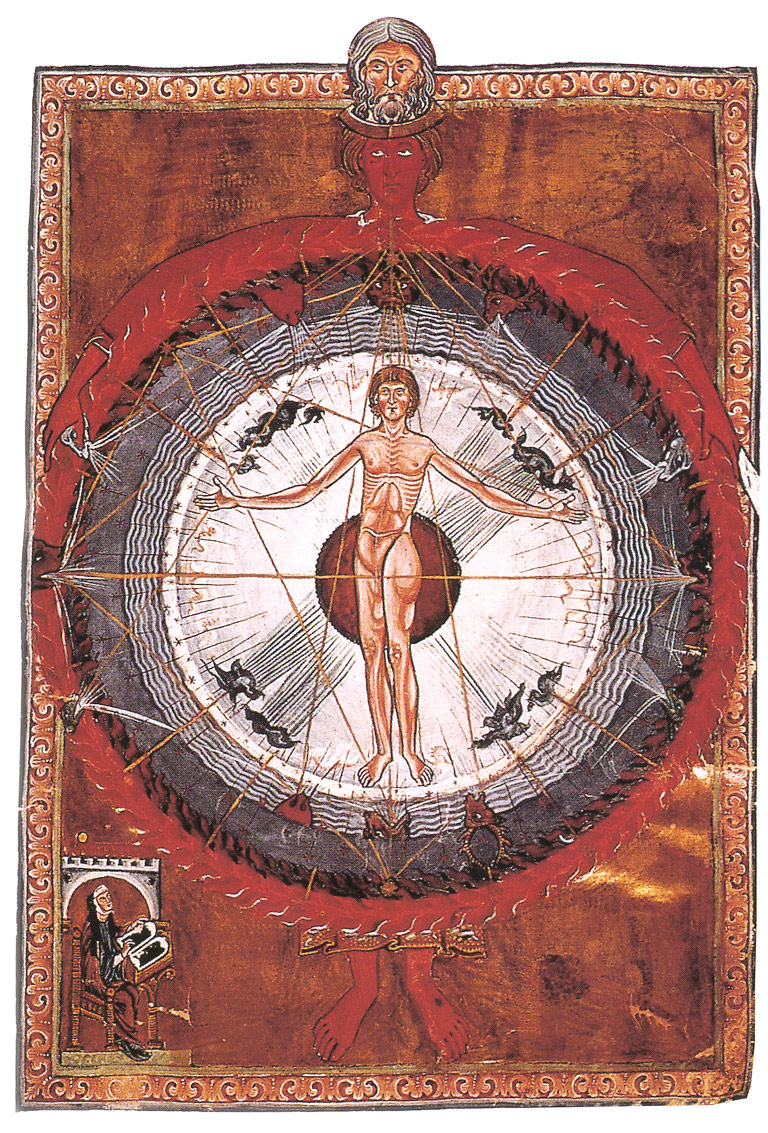Hildegard of Bingen is #23 in my project #EuropeanBios and she's a strange one: a religious scholar, an artist, a composer, a literal visionary, and a Catholic saint. You'll probably want to read all of the tweets in this thread in one go. You could say you'll be... Bingen them.
Hildegard was a multiply-talented creative genius and also an extremely formidable woman who overcame a lack of education and sexist discrimination in the church to run her own abbey and make contributions to theology, music, visual arts, and (kind of) to medicine.
This was a delightful biography written and narrated in a conversational style by a very southern-sounding lady who was obviously a huge fan of her subject and kept interjecting little personal notes from her own experience like "I've seen that painting, it was lovely".
Hildegard was born in 1098 in Bermersheim vor der Höhe, in the Rhine valley. This is smack bang in the middle of the kingdom created by Charlemagne, a previous subject of ours, and also a beautiful part of the world, which is going to be relevant. It looks generally like this:
She is known as "of Bingen" because that is where she ended her life, in the abbey she created and ran. It is all of 20 minutes away from where she was born.
Hildegard was a child of a noble family: her father was a knight and her mother a lady. But she was also the 10th of ten children, and so at the age of 8 she was given to the church. She and her alternate mother-figure, a woman called Jutta, were "enclosed" when she was 14.
This "enclosing" or "cloistering" was a much bigger deal back in the day. They were put into a fully enclosed building and then could not leave for years. There was an opening at one end so they could see into the church, and another so they could get food and throw out waste.
Jutta had an extremely severe view of her own faith, flagellating and punishing herself, but Hildegard's vision of spirituality was light and positive, soft and full of joy at the beauty in the world and especially in nature and growing things, like the place she grew up.
Hildegard had "visions" that left her physically weakened. There is a fair amount of evidence from her descriptions of them that what she was experiencing were migraine headaches; she gives visual descriptions of what modern migraine experiencers describe as migraine auras.
But she turned these visions into beautiful art. Everything in these paintings had spiritual significance to her: the colors, especially blue. The circles, the flames, the flowers, they were all to her part of a complex description of a supernatural vision.
She also composed poetry and music. Her lovely music, derived from & building upon the tradition of Gregorian chants, has had something of a revival recently, and is online. She composed without training in music or instruments, using only her voice.
She also wrote extensively on theology. Part of why she wrote was that it was considered out of order for a woman to preach, but writing things down had no such proscription, so it was a workaround. Her thoughts on the nature of god became famous in her time.
And finally she wrote on medicine. This was influential at the time but her actual approach to medicine was entirely unscientific and not particularly helpful, tied up with religious beliefs. She did however address medical conditions specific to women, which was groundbreaking.
As her volumes of art and writing grew she increased in fame and influence and used this to break out of sexist restrictions. At the time, nuns were always attached to monasteries, and the men controlled all the money going in and out. She broke away and founded her own.
Towards the end of her life her abbey was accused of religious misconduct, burying a man who'd been excommunicated. Her influence was enough by this point that she successfully challenged the church that her actions had been proper and won.

 Read on Twitter
Read on Twitter